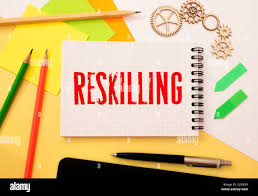Upskilling has been a buzzword lately, and rightfully so! There are various reasons why it’s essential for both employers and employees, and if kept up, it can be a great way to increase productivity and innovation for teams. Below are some of the many reasons it is essential in the tech industry.
Keeping up with Rapid Tech Advancements & Remaining Competitive
With the rapid advancement of technology, it is crucial to stay abreast of new tools, languages, and methodologies. Upskilling ensures that both employers and employees know about the latest developments and enhances the company’s competitiveness in the market.
Increased Productivity and Efficiency:
Acquiring new skills enables employees to work more efficiently and motivates them to continue to learn and grow, boosting productivity. This means your company can benefit from increased efficiency, better resource utilization, and overall improved outcomes.
Adaptation to Industry Trends:
In technology, adapting to an ever-evolving industry with changing trends and demands is essential. Upskilling allows your team to remain adaptable and agile as business strategies pivot to align with today’s needs.
Retention of Talent:
In today’s competitive landscape, it’s essential to keep top-performing employers engaged, and upskilling is a great way for employers to show their commitment to that. It helps employees with their professional growth and fosters loyalty, ideally reducing turnover (which can be very costly). Skilled and talented employees are much more likely to stay committed to an employer who supports their goals and career development.
Innovation and Creativity:
Introducing new skills and promoting continuous learning can foster innovation and creativity, which are pivotal to driving new ideas and fresh perspectives. This can be a huge benefit for organizations and employees alike.
Future-Proofing Careers:
As mentioned earlier, the tech industry is dynamic and ever-changing. Therefore, in some cases, older skills can become obsolete. Incorporating upskilling at your organization can ensure that both employees and companies can be prepared for future challenges and reduce the risk of skill gaps and job obsolescence, which could lend itself to unfortunate layoffs.
